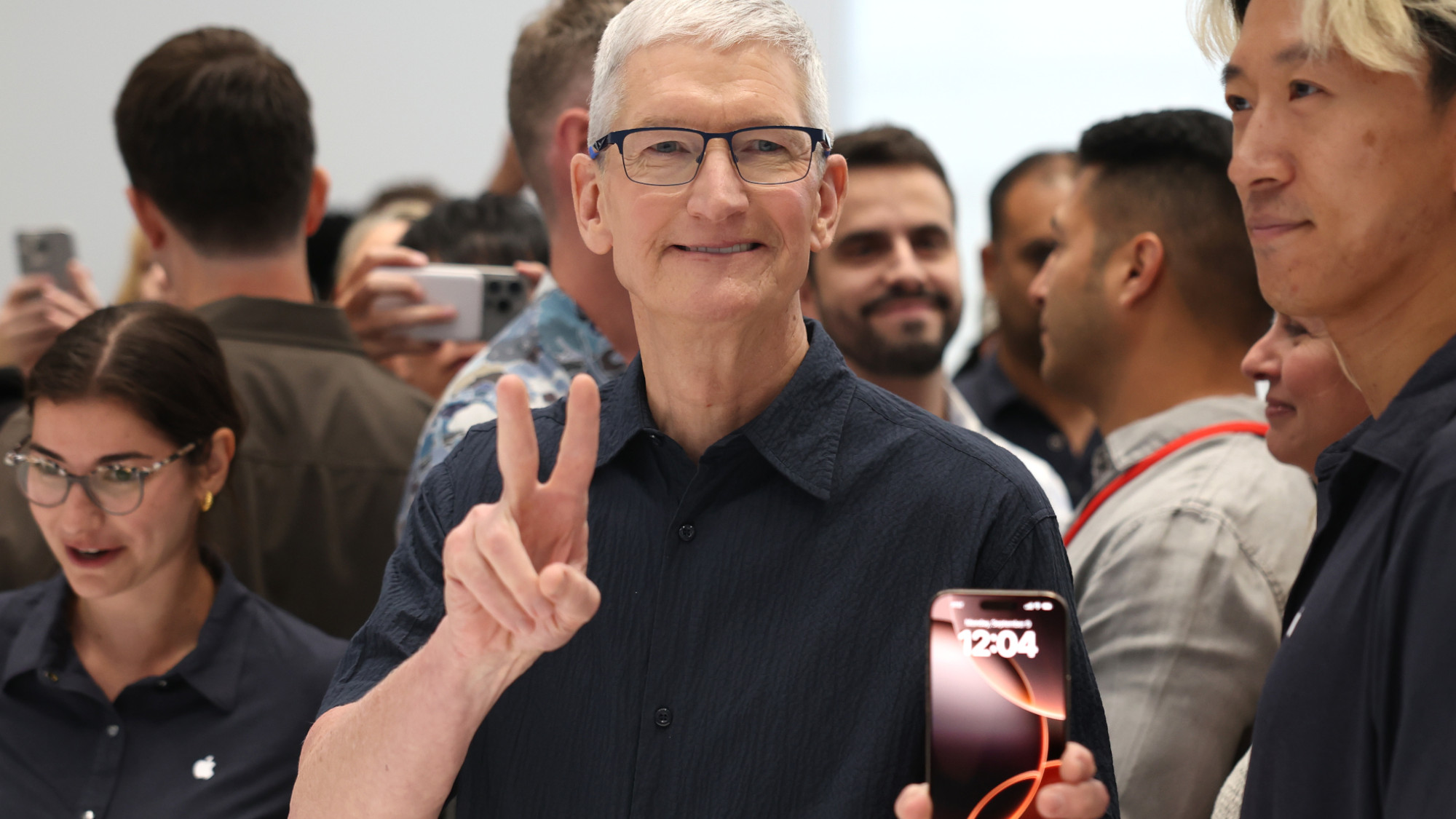Not there yet: The frustrations of the pocket AI
Apple rushes to roll out its ‘Apple Intelligence’ features but fails to deliver on promises

A free daily email with the biggest news stories of the day – and the best features from TheWeek.com
You are now subscribed
Your newsletter sign-up was successful
Apple rushed to join the crowd on AI and forgot how to “think different,” said John Naughton in The Guardian. The biggest tech giant of all kept investors and consumers waiting for its “own world-beating take on the technology.” But the so-called Apple Intelligence features it launched are “trivial and sometimes irritating.” Like many, I “fell for it and upgraded” to the iPhone 16 last fall. Apple’s AI “immediately started messing with my photo collection, imposing categories on images that were intrusive, unwanted, and annoying.” Other AI features like Image Playground, which makes pictures from prompts, may be fun “for a 4-year-old with a short attention span.” And its most useful update, an “enhanced Siri,” never really came to be. Last week, Apple replaced the head of its AI strategy, and it now says the truly enhanced Siri won’t be ready until 2026.
It’s one thing when media organizations gripe about “misconstrued summaries” of articles, said Dave Lee in Bloomberg. It’s entirely another thing, however, when regular consumers are angered by Apple’s AI mistakes after being falsely nudged “to buy a smartphone that costs $1,000” and does not deliver as advertised. Chief executive Tim Cook has put himself “in uncharted territory.” His fear of missing out on AI was driven “by the whims of Wall Street.” As AI mania took hold, Cook “gave his company a deadline it wasn’t sure it could meet, and now it hasn’t.” I don’t think his predecessor, Steve Jobs, “would have ever allowed himself to be rushed.”
Making a truly intelligent iPhone conflicts with Apple’s privacy goals, said Andrew Williams in Wired. Apple’s on-iPhone AI system “is tiny by the standards of any chatbots you may have tried.” Beefing up Siri, however, would likely mean “reverting to a server-based, OpenAI-powered interaction—much like those of Microsoft Copilot or Amazon Alexa+.” But it’s not clear how Apple feels about sharing all those queries with another company. Buyers trust Apple because of how it safeguards their data and privacy.
The Week
Escape your echo chamber. Get the facts behind the news, plus analysis from multiple perspectives.

Sign up for The Week's Free Newsletters
From our morning news briefing to a weekly Good News Newsletter, get the best of The Week delivered directly to your inbox.
From our morning news briefing to a weekly Good News Newsletter, get the best of The Week delivered directly to your inbox.
We seem to have reached a fork in the road for AI-powered gadgets, said David Pierce in The Verge. Not long ago, “start-ups were flooding the market with ChatGPT-powered devices,” and big companies like Apple, Google, and Amazon were touting how AI would transform the things consumers already love. There was just one problem: “The tech still doesn’t work.” Truly game-changing virtual assistants “are nowhere near close to ready” to deliver much value. Devices like the Humane AI pin and Rabbit R1 were predictable flops. With all we’ve heard about the AI revolution, “it’s hard not to feel bait-and-switched.”
A free daily email with the biggest news stories of the day – and the best features from TheWeek.com
-
 Switzerland could vote to cap its population
Switzerland could vote to cap its populationUnder the Radar Swiss People’s Party proposes referendum on radical anti-immigration measure to limit residents to 10 million
-
 Political cartoons for February 15
Political cartoons for February 15Cartoons Sunday's political cartoons include political ventriloquism, Europe in the middle, and more
-
 The broken water companies failing England and Wales
The broken water companies failing England and WalesExplainer With rising bills, deteriorating river health and a lack of investment, regulators face an uphill battle to stabilise the industry
-
 Are AI bots conspiring against us?
Are AI bots conspiring against us?Talking Point Moltbook, the AI social network where humans are banned, may be the tip of the iceberg
-
 Silicon Valley: Worker activism makes a comeback
Silicon Valley: Worker activism makes a comebackFeature The ICE shootings in Minneapolis horrified big tech workers
-
 AI: Dr. ChatGPT will see you now
AI: Dr. ChatGPT will see you nowFeature AI can take notes—and give advice
-
 Will AI kill the smartphone?
Will AI kill the smartphone?In The Spotlight OpenAI and Meta want to unseat the ‘Lennon and McCartney’ of the gadget era
-
 Claude Code: Anthropic’s wildly popular AI coding app
Claude Code: Anthropic’s wildly popular AI coding appThe Explainer Engineers and noncoders alike are helping the app go viral
-
 Will regulators put a stop to Grok’s deepfake porn images of real people?
Will regulators put a stop to Grok’s deepfake porn images of real people?Today’s Big Question Users command AI chatbot to undress pictures of women and children
-
 Most data centers are being built in the wrong climate
Most data centers are being built in the wrong climateThe explainer Data centers require substantial water and energy. But certain locations are more strained than others, mainly due to rising temperatures.
-
 The dark side of how kids are using AI
The dark side of how kids are using AIUnder the Radar Chatbots have become places where children ‘talk about violence, explore romantic or sexual roleplay, and seek advice when no adult is watching’